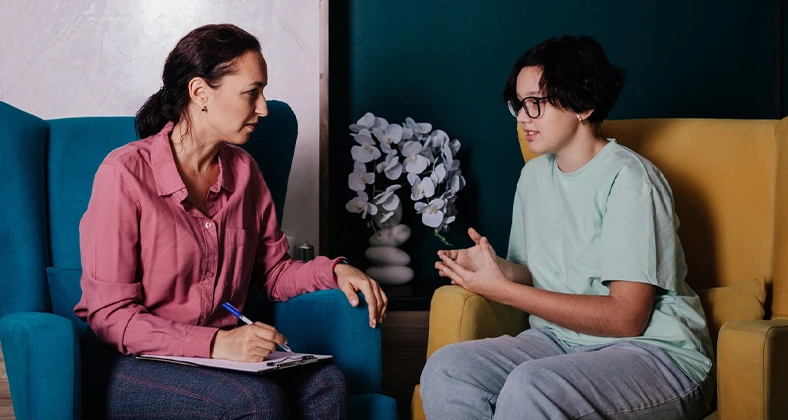Trauma can happen because of various incidents or events that can cause emotional disturbance or life-threatening conditions. It adversely affects an individual’s mental, physical, social, emotional, and spiritual well-being. The trauma process starts when the therapist and clients are comfortable with each other for communication. Online stress and trauma counseling in Edmonton use Trauma strategies like cognitive behavioral therapy (CBT), eye movement desensitization and reprocessing (emdr), somatic experience, and encouraging expression are being used by therapists. These strategies are effective, thus helping clients to deal with distress symptoms, and develop coping strategies, and process their traumatic memories. As therapy starts working, clients start observing a relief in symptoms, which improves overall well-being and increases a sense of empowerment that leads to regaining control over their lives.
What Trauma Therapy Helps to Deal with?
Edmonton emergency trauma counselling service helps to deal with various traumatic conditions, whether a long-lasting solution or a one-time event creates it. But it’s crucial to determine that trauma can refer to any occurrence or incident that harms a person’s emotions or psychologically. Some traumatic conditions are mentioned below:-
- severe accidents
- physically or sexually assaulting
- abuse, including childhood or domestic abuse
- exposure to traumatic events at work, including remote exposure
- serious health problems, such as being admitted to intensive care
- childbirth experiences, such as losing a baby
- Sudden death that is close to you
- Conflicts, wars, arguments and
- Torture
- Racism, discrimination, and oppression
- Staying with a family member who is mentally retarded or addicted to alcoholism. ]
- Violence
- Sudden separation from loved ones
- Childhood negligence
- Poverty
What Are Effective Techniques To Deal With Trauma?
The techniques used in trauma therapy may vary depending on your therapist’s recommendation to overcome a difficult situation. There are some techniques that your emotional trauma counseling Edmonton may recommend you in treating trauma:-
Imaginal exposure
Imaginal exposure is an effective technique often used in treating trauma where individuals imagine traumatic experiences and describe them out loud in a safe therapeutic setting. This works well and confronts you when you’re avoiding thoughts or memories related to the trauma you faced in your life.
In vivo exposure
This exposure therapy technique works outside the sessions based on real-life situations. It is meant to assist and confront you in consistently everyday circumstances that you might shy away from due to the trauma attached.
Written account
In this therapy, the counselor may ask you to write a descriptive note about the trauma you’ve been dealing with.
Impact statement
Writing an impact statement outlining your belief about the traumatic incident and how it affected your life is a typical CPT practice.
How To Cope With Traumatic Stress?
Seek Guidance
When you feel depressed or anxious, don’t let yourself alone. Share your thoughts, feelings, or whatever goes through your mind with friends, family members, or relatives. They listen to your issues and guide you through difficult times.
Practice Self- Care
Taking care of your mental and physical health is important during difficult times. Keep yourself busy in engaging activities that give you relaxation and comfort. This could be anything: meditation, exercise, yoga, spending time with nature, or hobbies you enjoy the most.
Make a Routine
Make a routine in your daily life that provides you stability, durability and predictability help you deal with traumatic stress.
Limit Exposure to Triggers
Try to find out the trigger points that take your traumatic stress and symptoms to an extreme level and take effective steps to minimize them. This means avoiding visiting places, people, or performing activities that remind you about the traumatic event.
Practice Grounding Techniques
Using grounding techniques helps minimize feelings of overload or dissociation and maintain your connection to the present. You can learn to stay present in the moment by doing simple mindfulness exercises, deep breathing, or focusing on your senses.
Educate Yourself
The coping mechanisms and the effects of trauma help you to deal with traumatic stress. Keep yourself updated with traumatic events and their impact on the mind and body and other available treatment options.
Be Patient
Trauma takes time to recover, so it is okay to go with your space. Practice self-compassion and patience when going through the ups and downs during the recovery phase. Remember that mending is a slow process, and acknowledge your modest accomplishments.
How Do I Know That I Need a Therapist for Traumatic Stress?
Following are the conditions where you must consult to trauma counselling for adults near you, a psychiatrist or psychologist. Let’s get insights into it:
- Fear, anxiety or depression
- Flashback memories of the traumatic time
- Facing difficulty in sleeping or nightmare
- Facing difficulty to focus on daily routine activities or relationships
Summing It Up
Here, we have covered all the information about trauma informed counseling intervention, how to cope with this, techniques and many more. Feelings like shock and denial are common issues individuals may face after experiencing or witnessing something terrible. You may face nausea, flashbacks, headaches and unpredictable emotions.
In worsening conditions, if you can’t cope with the best counselling and trauma therapy in edmonton helps you to get rid of the traumatic symptoms you’re dealing with, or when they’re influencing your day-to-day activities, trauma therapy can help you in this difficult situation.

